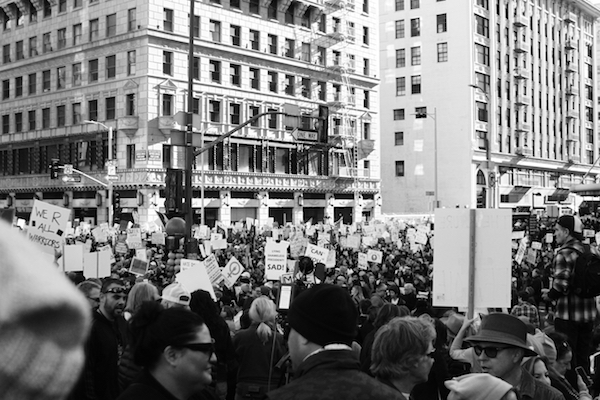The Internet is often used as a tool to spread information, discuss topics of political interest, personal opinions, and sensitive topics. Article 19 of the UN declaration of human rights declare freedom of speech to be one such right that applies to every human being, and therefore, the Internet has for a long time in many countries thrived under the protections granted by some of the basic human rights that many of us take for granted.

While freedom of speech does not include the right to freely be able to say anything without consequence, it does grant them the right to hold, seek, receive and impart information and ideas through any media. This is a right worth cherishing. Unfortunately, it is also a right that many countries infringe upon — often under the guise of protecting its citizens.
###A liberal internet policy in Russia In 2008, Russia re-adopted the ROSKOMNADZOR, the federal body responsible for controlling and supervising the country's media — including, but not limited to, electronic media, mass communication, and information technology — to make sure that they follow Russia's laws. Today, they're also the body responsible for Russia's Internet censorship.
In 2009, then-president Dmitry Medvedev revealed his new plan to modernize Russia, aptly called the Medvedev modernisation programme. One of his goals was to modernize Russia's information infrastructure (read: The Internet). It was a resounding success, with Russia's Internet usage skyrocketing. In 2008 when he became president, a mere 25% of the population had Internet access. By 2012, this number had increased to 64% of the Russian population.
Russia has for a long time had a very different attitude than China when it comes to Internet censorship. While China has blocked political media and social media for years, Russia has for a long time had a very liberal attitude towards Internet censorship. Unfortunately, that came to an end after the Russian protests in 2011-2013, which some people refer to as the Snow Revolution. The protests started in 2011 when then prime minister Vladimir Putin announced he would again run for president. This lead to a huge amount of protests and demonstrations, often organized through social media.
###The political power of the internet This probably marked one of the first times that the Russian government noticed that the Internet could be used to quickly spread information and organize large groups of people. As a result, the *Russian Internet Restriction Bill* was passed in 2012. The bill aimed to give a self-regulating government body the ability to blacklist internet sites containing alleged child pornography, drug-related material, extremist material, and other content which Russia deems to be illegal. The self-regulating government body was never created, and the power to censor parts of the Internet was instead granted to the ROSKOMNADZOR.
Russia has often claimed to only censor content deemed inappropriate, including specific pages on Wikipedia discussing drugs and suicide. In 2014, however, the ROSKOMNADZOR was accused of censoring the LiveJournal blog belonging to Alexei Navalny, together with two other pages opposing the Russian government. The reasoning was that they were making calls for unlawful activity and participation in mass events held with breaches of public order. In effect however, this silenced those opposed to the Russian government, preventing further demonstrations across the country. During the same time, they were also accused of censoring several pages pertaining to the annexation of Crimea.
### Increased fear of freedom of speech Fast-forward to 2017: The largest protests since 2012 (and before then, 1990) took place in various parts of Russia following the investigative film *He Is Not Dimon To You*. The movie, which accuses the previous president Dmitry Medvedev of corruption, got millions of views within the first few weeks of its release. Thousands of people across Russia — with some sources stating upwards of 150,000 people — attended the protests, despite threats from the Russian government.
Alexei Navalny is considered to be somewhat of a hero to the so-called Internet generation and often uses social media to get his message across. Social media was also the media used to organize the protests across the country. This bears great resemblance to other countries in Europe and America where youth are often the first to pick up on new technological trends and could explain why the main demographic of the 2017 protesters were under the age of 25.
This very likely sparked a new fear of further protests with the Russian government, which is only made more evident after Dmitry Bogatov was arrested for supposedly preparing to organize mass disorder. In reality, the TOR exit node hosted in his house was used as an exit point for a person trying to encourage violent demonstrations.
Whether by accident or not, the Russian government now aims to give the ROSKOMNADZOR expanded power when it comes to censoring. Just last week, several news sources highlighted a new Russian bill that — if passed — would block VPN providers that do not adhere to the ROSKOMNADZOR ever-expanding blocklist.
###What is next? Whether stricter censorship of the Internet is to follow remains to be seen. However, parallels can be drawn to both China and Turkey, where censorship is used as a way to silence their citizens. While the legitimacy of censoring websites featuring drugs, suicide and pornography are argued on a daily basis, censoring parts of the Internet to silence a dissident population is not discussed as much and is not defendable. That is what makes Internet censorship so dangerous. Once the precedent has been set, there's a thin line to walk between too much and too little. Who's to decide what's too much — you, or someone else? Maximilian Holm

